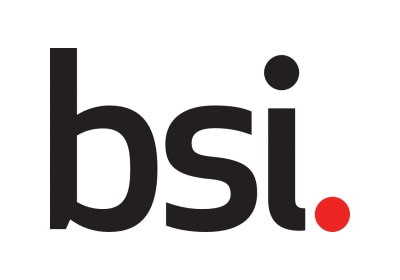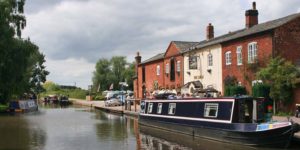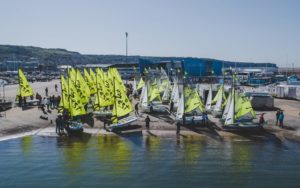BSI issues Brexit myth buster on standards

As announced last week, the UK Government released its White Paper on ‘the future relationship between the United Kingdom and the European Union’. The British Standards Institute (BSI) has provided some helpful clarification on how standards development and application will work after the UK leaves the EU.
BSI is responsible for all standards development in the UK and is the UK representative body with all international standard bodies. British Marine has a number of seats on standard working groups and actively works with and supports its work, to the benefit of the UK marine industry. These standards are invaluable and help UK marine businesses to comply with the wide range of regulations placed on the sector, both domestic and international.
BSI has engaged UK government since the referendum, educating, informing and advocating support for its position on Brexit and standards. This position sees BSI continuing to provide, post-Brexit, the standards-developing framework that its stakeholders need to trade nationally, in Europe and internationally. To deliver this position BSI will continue as a member of all the leading standards bodies – ISO, IEC, CEN and CENELEC – playing a full part in the development of international and European standards, as it does today.
BSI has also advocated government commitment to the role of voluntary standards in the economy, including a minority of standards that enable compliance with regulation, and to the single national standard model that ensures a coherent catalogue of British Standards.
The Government’s White Paper has a specific section on standards, where it says: “-the British Standards Institution (BSI) would retain its ability to apply the ‘single standard model’ – so that where a voluntary European standard is used to support EU rules, the BSI could not put forward any competing national standards.”
This clearly endorses the BSI position on standards and Brexit, supporting BSI’s continued role in CEN and CENELEC, and follows on from a letter received by BSI last month from Secretary of State for Business, Enterprise and Industrial Strategy, Greg Clark MP, in which he confirmed that the government would not change its established approach to the use of voluntary standards to support trade. In the letter he also encouraged BSI to fulfil its mandate as the UK’s National Standards Body and maintain UK influence in the European Standards Organisations.
Importantly, BSI has stressed that continued membership of CEN and CENELEC post-Brexit is not determined by any specific relationship between the UK and the EU post-Brexit. CEN and CENELEC develop European standards, not ‘EU standards’: they include national members from countries outside the EU, including Switzerland and Norway, and are not agencies of the European Union, but private associations owned by their members, which includes BSI.
BSI is continuing to work with European partners to make whatever changes are required to the statutes of CEN and CENELEC in order to reflect the UK’s status outside the EU.
British Marine members can find out more about its work with BSI and standards development, as well as guidance on specific standards, by contacting the British Marine technical team at technical@britishmarine.co.uk.











In a nutshell: When a boat builder sells a new boat they must declare that it meets the standards of the RCD. Recreational Craft Directive. They decide what category that it suits and have the design, or a sample boat assessed by a Notified Body and then sign a Certificate of Conformity, put a hull number on the stern and put a CE mark builder’s plate in the cockpit.
Before they build the boat and check that it conforms they have to read the fifty ISO standards that collectively make up the RCD. Very few bother!
The problem is that the ISO standards are so flippin expensive! People wrongly assume that they have to buy them from BSi (British Standards Institute), as BSi are seen as being “official”.
But they aren’t. The Estonian equivalent is just as official, even more so as it is a government body but they charge a fraction of what BSi charge for the same document. It is the same as it has the same ISO number on it and ISO starts with the word International.
I survey a lot of narrowboats and find that narrowboat builders are a law unto themselves and blatantly ignore the RCD. I have called many boatbuilders to ask for hull numbers and CE plates as they are more often than no missing. Answers that I receive include –
“we don’t put the hull number and a CE plate on because it would not look traditional” and “I have been building boats this way for years and don’t need anyone telling me how to do it”.
I find it shocking and I have to say the worst offenders are British boat builders.
In my opinion BSi are holding back British industry and placing European boat builders at at advantage as the ISO standards are sold at an inflated price.